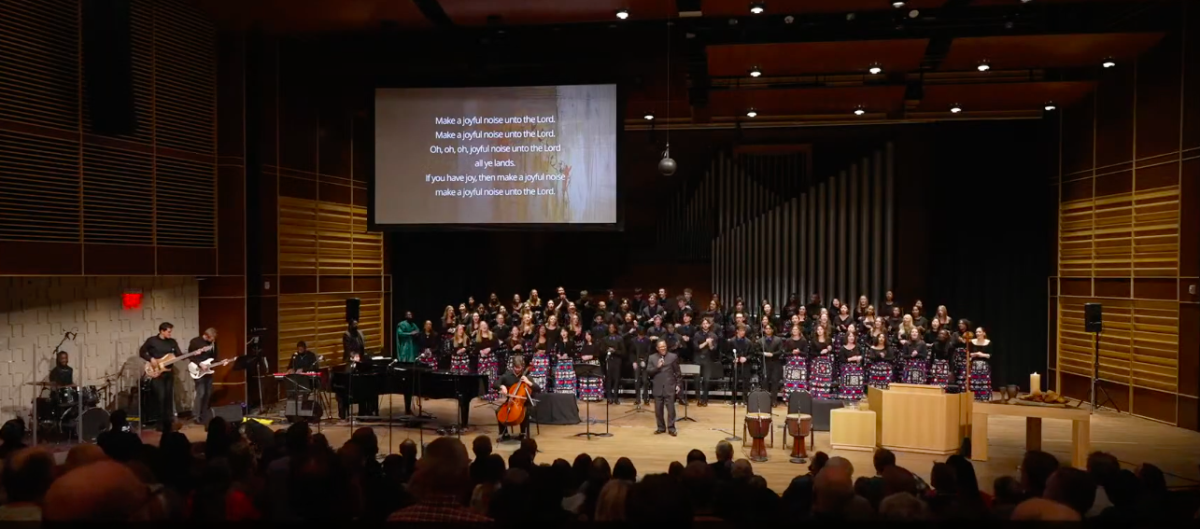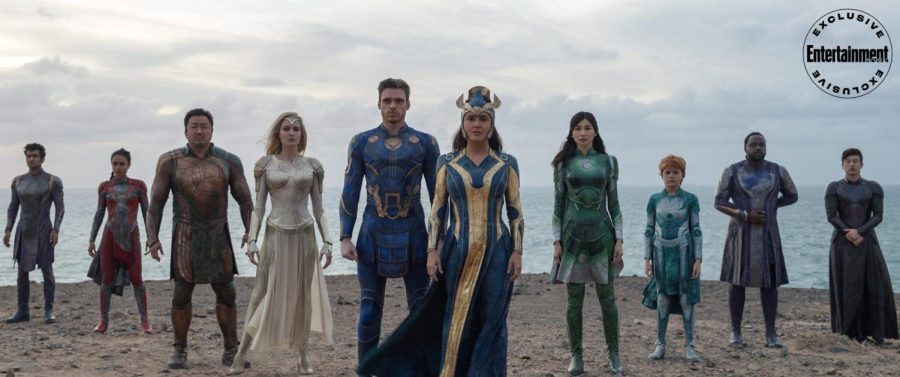“Django Unchained” is exactly what you would expect from a Quentin Tarantino film: violent and well done. The film is a satirical western that takes place in the deep south during the late 1850s. Dr. King Schultz (Christoph Waltz), a bounty hunter, frees a slave named Django (Jamie Foxx). Schultz agrees to help Django find his wife, Broomhilda (Kerry Washington), if Django agrees to help him hunt down wanted men. The film follows the men and their adventure that eventually leads them to a plantation owned by Calvin Candie (Leonardo DiCaprio), where Broomhilda is enslaved.
The story is thrilling and wildly entertaining. Tarantino never fails to approach a serious subject with a borderline inappropriate sense of humor. The violence is glamorous and not a scene goes by without a large and dramatic explosion of blood.
Although the violence is overbearing and the excessive use of the n-word unnecessary, Tarantino definitely knows how to entertain an audience. The music is loud and, though most of it fails to fit the time period, it sets the mood quite perfectly. Whether it’s pure white cotton being sprayed with a dying man’s blood or a quick zoom onto the curious face of Calvin Candie, the shots are beautiful and smart. Tarantino captures the fast-paced nature of the film through camera work and music.
The movie was nominated for several Oscars this year, including best picture. Tarantino won for his original screenplay and Christoph Waltz took home an Oscar for best supporting actor for his role as Dr. Schultz.
The writing really does deserve high praise. Tarantino mashes an old western with a slavery revenge fantasy. Although it lacks the director’s typical large cast, the characters are all complicated, unpredictable and satirical. He even includes a reference to the original Django by having Franco Nero, who played Django in 1966, ask Foxx’s character if he knew how to spell his own name. Nero even wears white gloves because Django’s hands were crushed in the original film.
Despite the focus on violent absurdity, the film still has good characterization and a good love story. Although Dr. Schultz has a questionable way of making a living — killing wanted criminals for money — he represents the morality in the film. He tells Django he does not believe in slavery and a couple of scenes show just how uncomfortable he is with the idea. Django spends most of the movie searching for his wife and consistently shows his dedication to finding and rescuing her by risking his life and killing many in the process. Although his methods are problematic, he expresses his love for her, which adds a nice romantic touch to the story.
Don’t let the jets of spurting blood keep you from watching or distract you from the superb acting and genius writing of this film. If you like Tarantino, this film falls in line with his other movies and won’t disappoint. The movie has its laughs and its surprises and does not fail to entertain.








